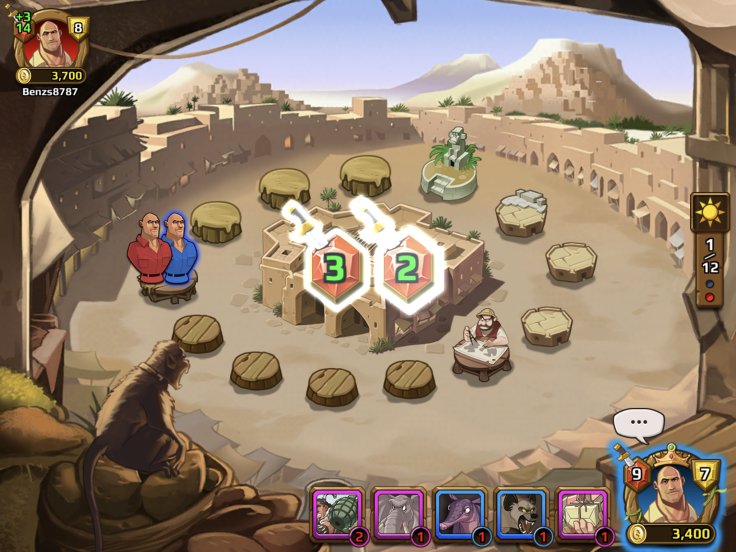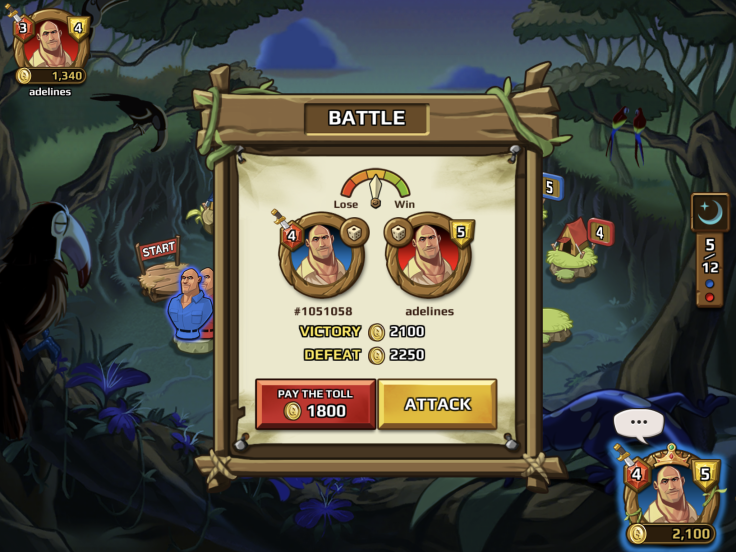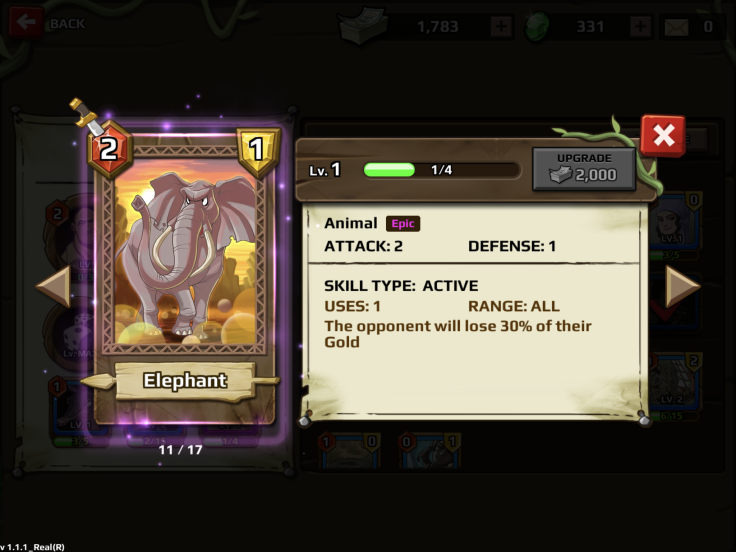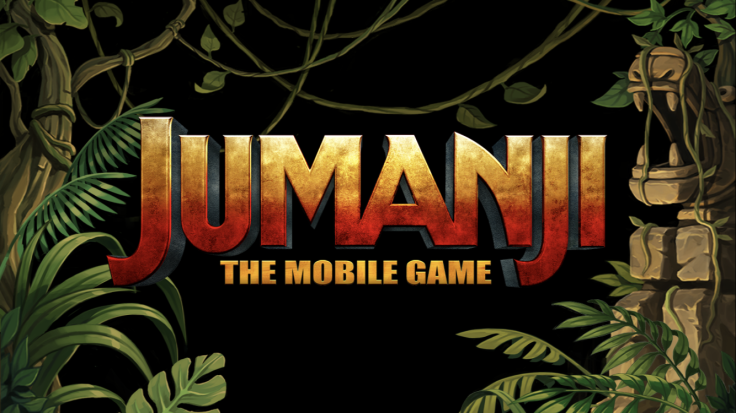Movie releases and casual mobile games seem to go hand in hand these days, so it's no surprise the new Jumanji: Welcome to the Jungle film has a companion mobile game. In my experience, the majority of movie-themed mobile games turn out to be uninspired money grabs, so I went into Jumanji with some tacit eye-rolling. However, after spending a little time with the game, I was happy to discover it isn’t half bad. In fact, once I got a handle on the rules, it became downright fun..

The best way I can describe Jumanji: The Mobile Game is a mashup of Monopoly and Hearthstone, but simpler. While the combination may sound terrible, it actually comes off quite well in Jumanji. The game board consists of 12 spaces. 10 of them are like Monopoly properties you can purchase and then set up camp. Each time you pass START, you’ll earn income off these properties, so acquiring as many as you can becomes a central goal. The other two spaces are special features, similar to the corners in Monopoly. These change as the game progresses. Sometimes they are punitive and landing on them will cause you to be imprisoned and miss a turn. Others can give you boosts like gold coins or the ability to move to any spot you choose on the board.
Like Monopoly, the object of the game is to monopolize the board, forcing your opponent into bankruptcy. What makes Jumanji ingenious, however, is that it solves a major Monopoly gameplay problem that puts many people off. When you first start playing Monopoly, it can be fun, but once a player has gained control of the board, the outcome is unavoidable and inevitable. If you are the loser, you’ll be subjected to hours of tedious torture as your opponent slowly bleeds you dry of your resources.

Jumanji solves this problem by offering more options for what can happen when you land on an opponent’s property. Players have the option to pay a toll or attack the other player. If they choose to attack (which everyone pretty much does), then players move to an RPG-style dice battle. If your attack is higher than your opponent’s defense score, you win the fight and with it, not only steal that player’s property, but also some of his or her gold.
But the battle isn’t solely dependant on the toss of a dice. In fact, attacks are where the Hearthstone -like CCG elements come into play. Going into a game, each player takes with them a deck of six cards. These cards make up your team and each have varying amounts of attack and defense points, as well as special skills. When you purchase a property, its base defense level is the same as your team’s combined defense points. In the same way, when you make an attack, your base attack is equal to the combined attack points of your team. When an attack occurs, your base points are added to your dice roll and whichever player’s total is higher wins the match. When a game ends, whichever player wins will be awarded a backpack full of resources, including new cards you can unlock or duplicates used for upgrading cards.

In the first stage of Jumanji, this is as complex as the rules get, but Stage 2 introduces to skills, which add a greater element of strategy to the game. Each card in your deck comes with a particular skill that is either passive or active. Passive skills go into action under certain conditions (ex: increase defense by 1 during the day), while active skills can only be used once during a game. These include everything from destroying an opponent’s base to stealing coins and more. Some of these skills prove quite useful and become a key factor in putting together your team. You also get to choose one of four heroes for your game, each with a starting perk like additional coins or heightened attack scores.
Since Jumanji is meant to be played in five to 15 minutes, the developers have added two additional ways of winning the game if you can’t manage to bankrupt your opponent. 1) Gain control of all properties in a set, creating a monopoly or 2) have the most money at the end of 12 rounds.
My biggest complaint with Jumanji is the opening tutorial lacked information about how to play and the strategy behind the game, which could be off-putting to new players. If you stick in there though, you’ll soon discover that Jumanji is a satisfying online multiplayer game. If you enjoy casual games that combine both luck and strategy this one is worth checking out. You can download Jumanji now for free on either the Apple App or Google Play store.
- lots of cards to collect
- fast-paced gameplay
- great mixture of luck and strategy
- requires internet connection (online multi-player)
- tutorial could use more detail



















